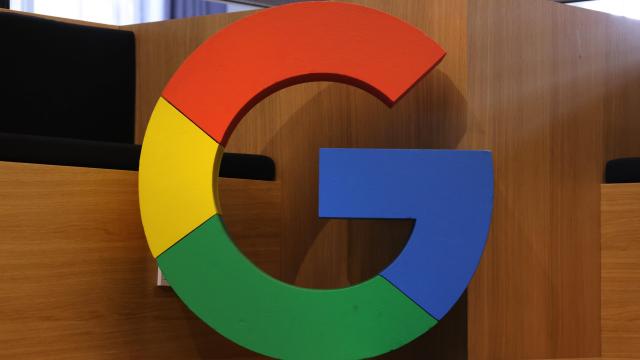Just three years ago, a historic Google worker protest forced the company to abandon a major AI military contract, the company appears back at it again. That’s according to a recent New York Times report which unearthed details around a contract known as the “Joint Warfighting Cloud Capability,” which aims to modernise the Department of Defence’s cloud tech and support the use of artificial intelligence.
According to the report, that contract is an offshoot of what was once the $US10 ($14) billion Joint Enterprise Defence Infrastructure (or JEDI). That contract was originally awarded to Microsoft but was scuttled after Amazon torpedoed the deal with the threat of years worth of looming legal battles. This new contract would reportedly replace JEDI, last half as long, and involve multiple companies. Google wants to be one of those companies, and according to the report, has made it a top priority.
In an emailed statement to Gizmodo, a Google spokesperson said they “strongly believe a multi-cloud strategy offers the department the best solution today and in the future.”
“We are firmly committed to serving our public sector customers, including the DoD, Department of Energy, NIH, and many other government agencies, and we will evaluate any future bid opportunities accordingly.”
Winning the contract would mark a huge financial win for Google, which has fallen behind in the cloud computing race against Amazon and Microsoft. According to data from research firm IDC, Amazon Web Services and Google made up 24.1% and 16.6% of the global public cloud computing market share in 2020. Google sat at a distant third with a 4.2% market share.
At the same time though, reentering a major military contract could risk exposing the company to another volley of heated backlash from employees and the public. Back in 2018, about a dozen employees resigned over Project Maven — an attempt to provide AI technology to a controversial military drone project — and around 3,000 Google employees signed a letter opposing the project. At the time, workers claimed Google’s efforts to push through the project showed a lack of transparency and interest in hearing employee objections, some of which opposed the idea of Google partnering with the military in any capacity. Following protests, Google announced it would not renew its Project Maven contract, in effect shutting down Google’s major US military partnerships…until now.
Following all the Project Maven backlash, Google released a set of ethical guidelines intended to outline principles around its use of AI which includes sections restricting the use of weapons systems or surveillance. But sources cited in the Times report worry obligations in the new contract, particulate as it pertains to AI, could run afoul of those principles.
Gizmodo spoke to an Alphabet Workers Union member and program manager at Google who asked to remain anonymous out of fear of retaliation. They said the contract had caught them by surprise and that they hadn’t been made aware of it until the Times reached out ahead of their story. Google reportedly labelled the project “Code Yellow” which meant some workers suddenly found themselves assigned to a project they had not had prioritised before, some of whom may morally oppose working with military sources.
“Workers should absolutely be given the right to know where their labour is being put to,” the program manager said. “They should also have the ability to refuse or advocate against putting workers’ labour towards unethical means.”
The secretive nature of the contracts risks further eroding trust and transparency efforts between Google executives and employees, something the program manager said has worsened in recent years.
Though the Project Maven case may have ended in a win for anti-Google activists, military partnerships and nationalism have a long history at Google, especially amongst one of its most iconic former executives. Former Google CEO Eric Schmidt was tasked by the US government in 2019 to formally co-head the National Security Commission on AI, whose goal is to produce length reports for the President and Congres detailing methods and strategies for advancing AI in national defence.
In its first major report, Schmidt and others on the commission pushed back against calls for a global ban on AI-assisted weapons systems and advocated for a ramping up of cooperation between the military and private industry to act as a counterweight against alleged aggression from China and Russia.
“It is no secret that America’s military rivals are integrating AI concepts and platforms to challenge the United States’ decades-long technology advantage,” the report reads. “We will not be able to defend against AI-enabled threats without ubiquitous AI capabilities and new warfighting.”
Looking to the future, the report’s authors feared the United States’s “armed forces could lose their competitive military-technical advantage within the next decade if they do not accelerate the adoption of AI.”
